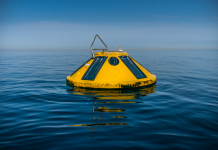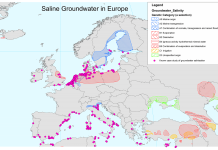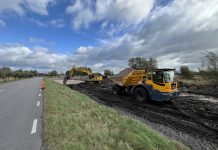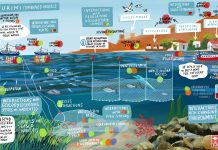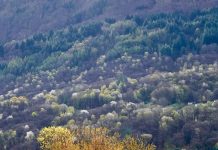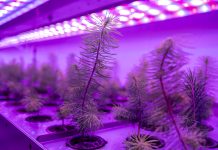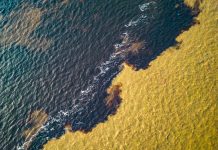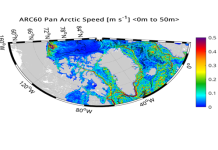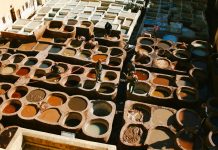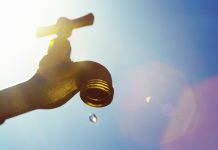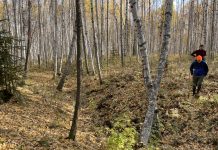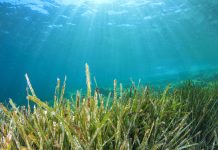Open Access Government produces compelling and informative news, publications, eBooks, and academic research articles for the public and private sector looking at health, diseases & conditions, workplace, research & innovation, digital transformation, government policy, environment, agriculture, energy, transport and more.
Home 2025
Archives
Charting the technical landscape of marine carbon dioxide removal
Dr Nils Thonemann and Mona Delval from the University of Leiden consider the scientific and technical requirements for effective evaluation of emerging marine carbon dioxide removal (mCDR) approaches.
Overcoming barriers for efficient dialogue between research and practice
As climate and biodiversity crises grow more complex, productive exchange between researchers, practitioners and policymakers becomes crucial. This article outlines the hurdles to efficient dialogue and the approaches that can help build trust, shared understanding and real-world impact.
Salinization of coastal groundwaters in the EU – What can we do about it?
Written as part of the LIFE-FRESHMAN project, this article examines the issue of coastal groundwater salinization in the EU, particularly its impact on freshwater reserves, and highlights key strategies for mitigation.
The benefits of harvest residue and vegetation control on conifer seedling survival and growth
Mark Kimsey, the Director of the Intermountain Forestry Cooperative, discusses the benefits of harvest residue and vegetation control on conifer seedling survival and growth.
Can stem cells aid coral reef recovery?
Shani Talice and Benyamin Rosental from Ben Gurion University of the Negev explore how stem cells could help corals recover from stress and environmental damage, addressing the urgent threats of climate change, pollution, and disease to coral reefs.
Sudbury peatland restoration from metal pollution
Professor Pete Whittington discusses efforts to restore metal-contaminated peatlands in Sudbury, Ontario, which were heavily affected by mining since the 1880s.
Vellinge reinvents flood protection with nature-based innovation
Nature meets engineering in Vellinge’s innovative flood defence, setting a new standard for sustainable coastal protection, Anders Purcell, Project Manager at Vellinge Municipality explains.
Rare earth, critical minerals, and bio-molecules: Centering African IPLCs in the new resource economy
Dr. Metolo Foyet, Conservation Equity & Safeguards Specialist at The Nature Conservancy, highlights the intersections of critical minerals, biodiversity, and Indigenous rights in the global green transition.
Canada’s critical minerals research in building its future economy
Mostafa Fayek, Distinguished Professor at the University of Manitoba, discusses the significance of critical minerals (CMs) in modern technology and national security, highlighting their essential role in Canada’s economy and energy transition.
Unlocking global climate finance: Governments must champion carbon markets
While governments worldwide are stepping up to support voluntary carbon markets, now is the time to scale climate finance with integrity and impact, Chris Duck from Climate Impact Partners argues.
SURIMI: Pioneering sustainable fisheries management via EU DTO
Patrycja Antosz, the Research Director of the Center for Modeling Social Systems in NORCE Research AS, shares details of the SURIMI project, part of the European Digital Twin of the Ocean (EU DTO) initiative, aiming to enhance sustainable fisheries management.
Forest management in an uncertain future: The role of tree diversity
Prof Dr Andreas Rigling and Dr Valentina Vitali highlight the importance of tree diversity for enhancing forest resilience in an uncertain future.
Proving the power of biochar beyond net zero
Concerning proving the power of biochar beyond net zero, Alastair Collier, Chief R&D Officer, and Dr Sally Wilkinson, Lead Scientist at A Healthier Earth, provide insight.
COP30 in Belém: Leadership between two worlds
Professor Richard Beardsworth continues his analysis of expectations for COP30 in Belém, as he navigates leadership between two realms, one rules-based and co-operative, the other nationalist-populist and centrifugal.
Modelling ocean currents in a changing climate
Paul Myers, Professor at the University of Alberta, emphasizes the necessity for a new generation of very high-resolution computer models to effectively understand how ocean currents will change in a warming climate.
The challenges around the fastness of natural dyes for textiles
Victor Durand from Ever Dye sheds light on the challenges surrounding the fastness of natural textile dyes. Dive into his insights, and learn why this issue is crucial for the future of the textile industry.
Mounting water scarcity: A complex challenge requiring nuanced solutions
Addressing increasing water scarcity is a complex challenge that requires nuanced solutions, according to Peter Greve from the Climate Service Center Germany.
Cryptic ground ice conditions in permafrost and northern agricultural expansion
Permafrost conditions are often heterogeneous and concealed beneath the surface, becoming evident only when thawing occurs. Melissa Ward Jones discusses these challenges and highlights a new publication that identifies ice wedges for the first time in the Yukon-Kuskokwim Delta region of Alaska.
Knowledge tipping points: Co-creating rainforest futures
The article highlights the importance of envisioning multiple futures for human and rainforest coexistence. It emphasizes forest conviviality and knowledge co-creation, drawing insights from the PRODIGY research project, which shows that knowledge systems are essential for socioecological resilience.
Navigating the sea of uncertainty around Marine Carbon Dioxide Removal (MCDR)
Prof. Christopher Pearce and Dr Willem van Dorp discuss the need for science-based governance approaches when evaluating the potential benefits, impacts and effectiveness of emerging marine carbon dioxide removal techniques.

